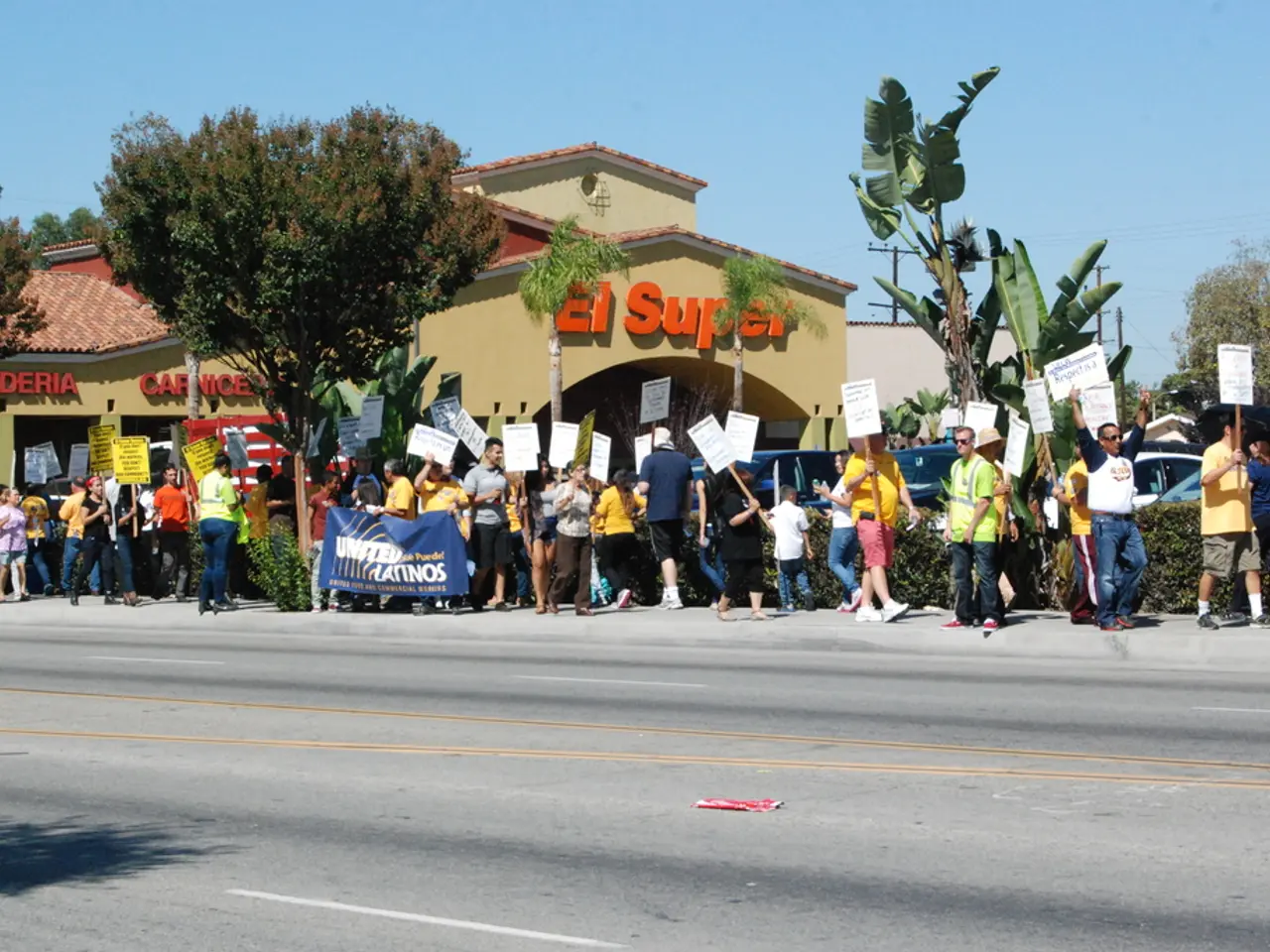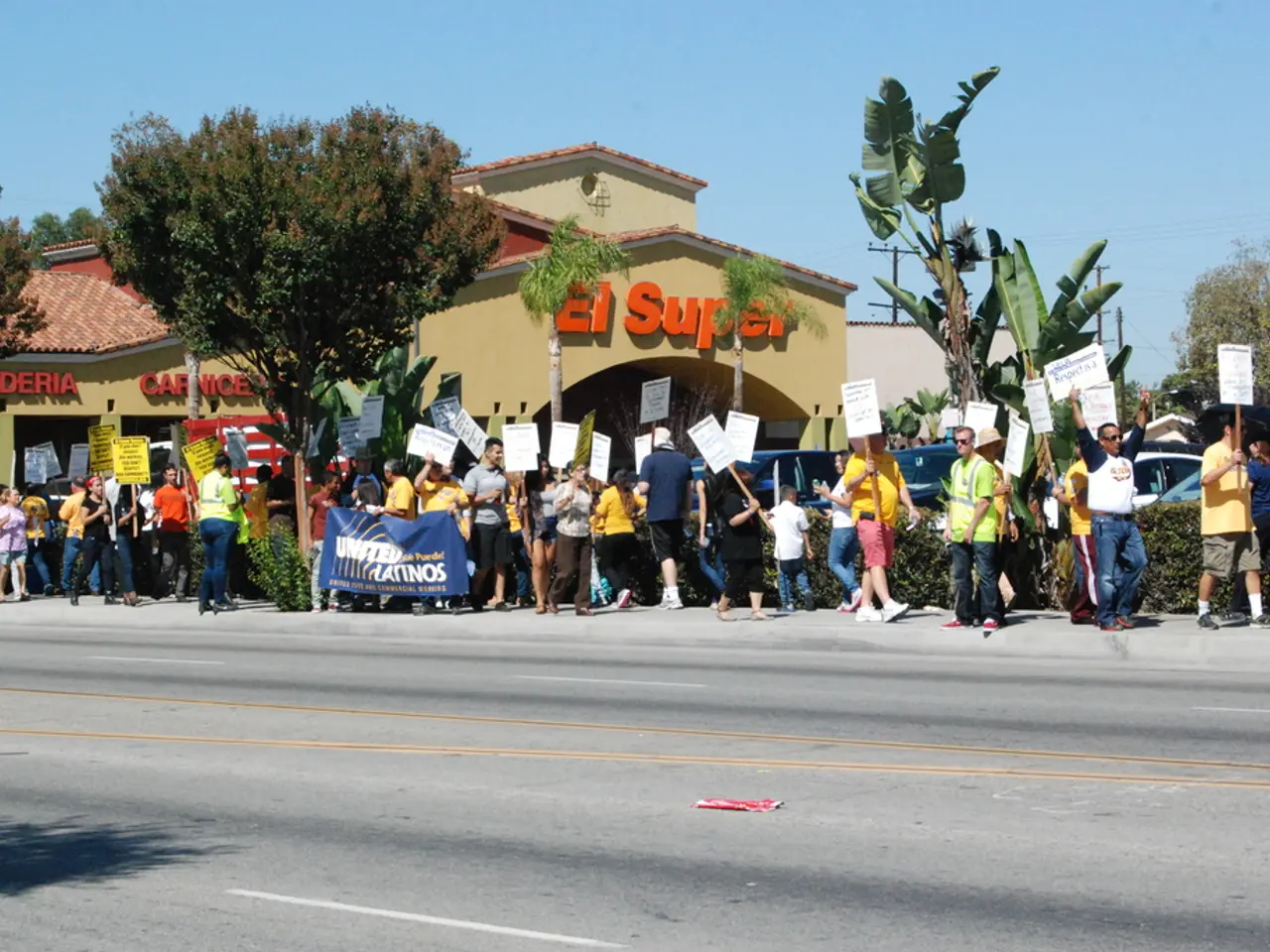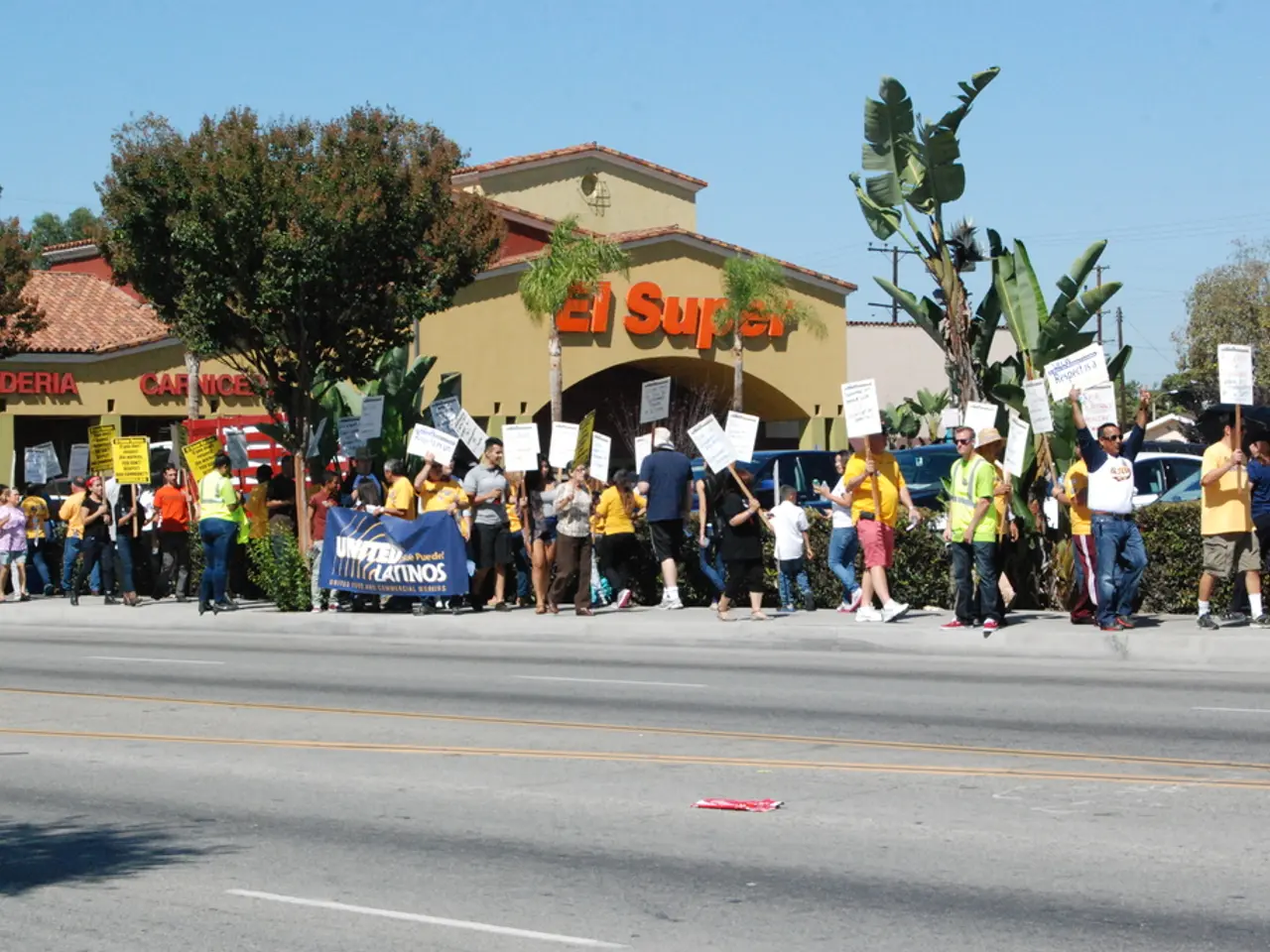Election Foreshadowing - The Anti-Orbán LGBTQ+ Celebration
In the heart of Europe, Hungary has found itself at the centre of a contentious issue, as the country's government moves to restrict the annual Budapest Pride event. The recent amendment to the law on assembly, passed in March 2025, has sparked outrage both domestically and abroad, with critics accusing the government of further dismantling democratic principles and fundamental rights.
The first section of the amendment prohibits assemblies that violate the prohibition set out in the Child Protection Act. This has led to the ban on the Budapest Pride, a vibrant celebration of the LGBTQ+ community, which was organized by volunteers, opposition parties, music bands, civil associations, and the media outlet Refresher.hu. The budget for the march was approximately 25,000 euros.
The ban has been met with strong opposition from LGBTQ+ groups and human rights organizations, who argue that it represents a significant erosion of democratic freedoms and human rights. The ban effectively restricts the assembly of LGBTQ+ individuals, making it a criminal offense to organize or attend such events.
The new legislation has been criticized for violating Hungary's constitutional guarantees, specifically Articles VIII and IX of the Fundamental Law, which protect the rights to peaceful assembly and freedom of expression, respectively. Internationally, it conflicts with Articles 10 and 11 of the European Convention on Human Rights, which safeguard freedom of expression, assembly, and association. The use of facial recognition technology by police to identify participants in prohibited events is also legally contentious, as it is considered incompatible with EU law.
The Hungarian government, led by Viktor Orbán's Fidesz party, has framed the legislation as a necessary measure to protect children. However, critics view it as an attack on LGBTQ+ rights and freedom of assembly. The ban on Pride parades has strained Hungary's relations with other EU member states and international organizations, as they are seen as undermining democratic norms and violating human rights obligations.
Despite the controversy, the government's strategy to ban Pride has proven effective, as it has helped the Tisza Party, currently the most popular force among Hungarian voters, to grow stronger in the polls. However, it's important to note that Tisza's base is diverse, ranging from left-liberals to centrists and conservatives who are dissatisfied with Fidesz and its corruption scandals.
The ban on Budapest Pride was announced less than a month after Hungarian Prime Minister Viktor Orbán's speech in February. The amendment was a response to the massive success of the 2022 Budapest Pride march, which attracted an estimated 250,000-450,000 people. The government's goal was to dent the popularity of the Tisza Party.
The political landscape in Hungary remains complex, with ongoing legal challenges and the potential for further developments. As the situation unfolds, it is crucial to uphold the principles of democratic freedom, human rights, and respect for all individuals, regardless of their sexual orientation or gender identity.
The amendment, passed in March 2025, not only prohibits the annual Budapest Pride event but also restricts other assemblies that violate child protection laws, causing a stir in general-news and politics, as critics accuse the government of dismantling democratic principles and fundamental rights. The ban on such events, including Budapest Pride, has faced strong opposition from LGBTQ+ groups and human rights organizations, arguing it erodes democratic freedoms and human rights.





